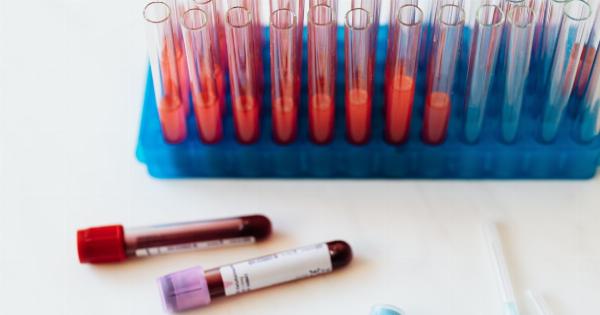Depression is a widespread mental health condition that affects millions of people worldwide. While there are various treatment options available, medication is often a critical aspect of managing depression.
However, studies have shown that medication noncompliance is a common issue among individuals with depression. This is where artificial intelligence (AI) can play a significant role in detecting and addressing medication noncompliance, leading to improved outcomes for patients.
The Problem of Medication Noncompliance in Depression Treatments
Medication noncompliance refers to a patient’s failure to take prescribed medication as recommended by healthcare professionals. In the case of depression, noncompliance can lead to ineffective treatment and increased risk of relapse.
There are several reasons why individuals with depression may not comply with their medication regimen, such as forgetfulness, side effects, cost concerns, or simply feeling better and underestimating the ongoing need for medication.
Traditionally, healthcare providers have relied on self-reporting by patients to assess medication adherence. However, self-reporting can be unreliable and subject to bias.
Patients may inaccurately report their adherence due to social desirability bias or memory failures. This gap in accurate adherence monitoring calls for innovative solutions such as AI to improve patient outcomes.
The Role of Artificial Intelligence in Detection
Artificial intelligence systems utilize advanced algorithms and machine learning techniques to analyze large datasets and derive patterns.
In the context of medication noncompliance in depression treatments, AI can process various data sources to detect patterns or deviations that may indicate noncompliance. Here are some ways AI can be utilized:.
1. Analysis of Electronic Health Records
Electronic health records (EHRs) contain valuable information about a patient’s medical history, including prescribed medications.
AI algorithms can analyze EHR data to identify any gaps or inconsistencies in medication refill records or missed appointments. This analysis can help healthcare providers intervene and address noncompliance issues promptly.
2. Natural Language Processing
Natural language processing (NLP) is a branch of AI that enables machines to understand and decipher human language. AI-powered chatbots or virtual assistants can interact with patients via text or voice messaging platforms.
Through these interactions, AI can assess patients’ medication adherence, ask appropriate follow-up questions, and provide reminders or educational resources to encourage compliance.
3. Smart Pill Dispensing Systems
Smart pill dispensing systems, integrated with AI, can be used to track and monitor medication adherence. These systems are equipped with sensors that detect when a pill is dispensed, sending real-time data to an AI algorithm.
By analyzing the data, AI can identify any deviations or missed doses and subsequently notify healthcare providers or caregivers for intervention.
4. Wearable Devices and Biosensors
Wearable devices, such as smartwatches or fitness trackers, can now monitor various physiological parameters in real-time. AI algorithms can analyze the collected data to detect patterns associated with medication noncompliance.
For example, changes in sleep patterns, heart rate, or activity levels might indicate a deviation from the prescribed medication regimen.
5. Social Media and Online Patient Communities
Many individuals with depression find solace and support in online patient communities and social media platforms. AI can scrape these platforms for conversations and posts related to medication adherence.
By analyzing the language used and sentiment expressed, AI algorithms can identify individuals who might be struggling with medication noncompliance and target them with appropriate interventions.
The Benefits and Challenges
The utilization of AI in detecting medication noncompliance in depression treatments offers several benefits. Firstly, it allows for objective and accurate monitoring of adherence, eliminating the reliance on self-reporting.
Secondly, AI algorithms can detect noncompliance patterns early on, enabling healthcare providers to intervene and provide necessary support. This proactive approach can reduce the risk of relapse or worsening symptoms.
However, there are also challenges that need to be addressed when implementing AI systems in this context. Privacy and data security concerns must be carefully managed to ensure patient confidentiality.
Additionally, the accuracy and reliability of AI algorithms need to be validated through rigorous testing and validation processes to build trust among healthcare providers and patients.
The Future of AI in Depression Treatment
As technology continues to advance, the role of AI in depression treatment is likely to expand. AI systems can be further optimized to personalize treatment plans based on individual patient data, providing more effective and tailored interventions.
Moreover, AI can contribute to early detection of treatment resistance, optimizing medication regimens, and exploring alternative treatments or adjunct therapies.
Conclusion
Artificial intelligence is revolutionizing the field of mental health care by addressing the issue of medication noncompliance in depression treatments.
With the ability to analyze large datasets and detect patterns, AI algorithms can provide valuable insights to healthcare providers and improve patient outcomes. While challenges exist, the benefits of AI in this context are undeniable. With ongoing advancements, AI is poised to play a critical role in the future of depression treatment.































